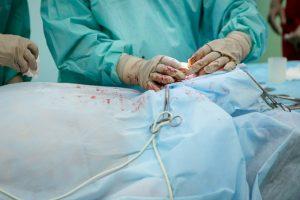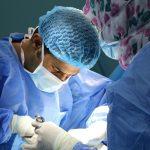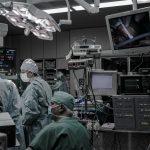-
10 Key Benefits of Choosing Hernia Surgery and Repair at St. Peters’ Benrus Surgical
-
5. Comprehensive Post-Operative Support: Smooth Rehabilitation
-
9. Access to Multidisciplinary Specialists: Holistic Health Approach
-
10. Insurance Coordination Assistance: Financial Support and Guidance
Looking to ace your hernia surgery and repair in St. Peters? We’ve got the ultimate guide to help you through this wellness journey. From pre-op preparations to post-op recovery, we’ve got all the crucial tips covered.
In this listicle, we’ll walk you through finding the right surgeons at benrussurgical.com, surgery, and recovery. Plus, we’ll share some insider tips on how to ensure a smooth and successful surgical experience that will have you back on your feet in no time.

Scroll down for reviews of our top picks!
Key Takeaways
-
Minimally Invasive techniques lead to faster recovery, allowing patients to return to their regular activities sooner.
-
An expert surgical team ensures high success rates and quality care throughout the hernia surgery and repair process.
-
Personalized care plans tailored to individual needs result in more effective and targeted treatment.
-
State-of-the-art facilities equipped with advanced medical equipment contribute to better surgical outcomes and patient comfort.
-
Comprehensive post-operative support facilitates a smooth rehabilitation process, promoting overall well-being after surgery.
-
The use of durable repair methods reduces the risk of hernia recurrence, providing long-term relief and peace of mind for patients.
1. Minimally Invasive Techniques: Faster Recovery
Minimally invasive hernia repair techniques involve making small incisions, typically less than one inch long, compared to the larger incisions required for open surgery. This results in faster recovery times as smaller incisions mean reduced trauma to the body. These techniques lead to minimized tissue damage and scarring, contributing to a speedier healing process.
Studies have shown that patients who undergo minimally invasive surgical procedures experience less postoperative pain and require fewer pain medications compared to those undergoing traditional open surgery. This not only accelerates recovery but also enhances overall patient comfort during the healing process.
Furthermore, the reduced risk of complications associated with minimally invasive surgery allows patients to return to their daily activities sooner. For instance, individuals who undergo laparoscopic hernia repair often report quicker returns to work and regular physical activities when compared with those who opt for open surgery.
2. Expert Surgical Team: High Success Rates
The surgical team at St. Peter’s is comprised of highly qualified and experienced surgeons dedicated to meeting all surgical needs, particularly specializing in hernia repair procedures. Their expertise in this field ensures optimal outcomes for patients seeking hernia surgery.

-
The team boasts a proven track record of successful surgeries, reflecting their commitment to delivering top-notch care.
-
Patients can have confidence in the skills of the surgeons at St. Peter’s as they are specifically trained and specialized in surgery, ensuring that each patient receives tailored care based on their unique condition.
-
The practice plus group has consistently demonstrated its ability to provide effective solutions for hernia-related issues, with a focus on utilizing advanced techniques and state-of-the-art technology to optimize patient recovery and minimize post-operative complications.
3. Personalized Care Plans: Tailored to Individual Needs
Customized treatment strategies are developed for each patient, ensuring that their unique medical history and condition are taken into consideration. This individualized approach guarantees exceptional care, leading to optimal surgery outcomes.
-
Each patient’s specific needs are carefully evaluated.
-
Tailored care plans cater to the unique requirements of every individual.
-
The practice is committed to providing ongoing specialized care for its patients.
4. State-of-the-Art Facilities: Advanced Medical Equipment
Cutting-edge technology plays a pivotal role in the diagnosis and treatment of hernias and surgery at Benrus Surgical. The facility boasts state-of-the-art medical equipment that enables precise and accurate assessments, leading to improved quality of care for patients.
Modern surgical tools and instruments are integral to ensuring successful hernia repair surgeries. At Benrus Surgical, these advanced tools contribute to enhanced surgery outcomes, reduced recovery times, and minimized post-operative complications.
Moreover, the facility’s advanced imaging capabilities allow for thorough evaluations of hernias. This leads to more informed decision-making by healthcare professionals regarding the most suitable treatment approaches for individual patients, surgery. By leveraging cutting-edge imaging technologies, such as MRI or CT scans, the medical team can accurately assess the extent of a patient’s condition before proceeding with surgery.
5. Comprehensive Post-Operative Support: Smooth Rehabilitation
Rehabilitation programs play a crucial role in ensuring a smooth recovery after hernia surgery. These programs are tailored to each patient’s specific needs, focusing on restoring strength and mobility while minimizing discomfort after surgery.
Follow-up care, surgery is an integral part of the rehabilitation process. It allows healthcare providers to monitor the patient’s progress, address any concerns that may arise, and make necessary adjustments to the treatment plan.
Guidance on post-surgery activities and lifestyle adjustments is provided to help patients navigate their daily routines effectively. This includes advice on lifting restrictions after surgery, physical activity recommendations, and dietary modifications aimed at promoting healing and preventing complications.
6. Reduced Risk of Recurrence: Durable Repair Methods
Hernia repair surgeries now employ strong materials to ensure a reduced risk of recurrence. Surgeons use advanced techniques focused on preventing future hernias by reinforcing the abdominal wall with durable solutions.
The use of laparoscopic repair has significantly contributed to reducing the risk of recurrence in hernia patients. This minimally invasive approach allows for precise placement and fixation of the mesh, leading to improved outcomes and lower chances of hernia reoccurrence.
Emphasis is placed on providing patients with durable repair methods during their initial hernia repair. By utilizing high-quality materials and innovative surgical techniques, surgeons aim to minimize the risks associated with hernia recurrence post-surgery.
Through continuous advancements in treatment options, such as tension-free repairs and mesh reinforcement, medical professionals are able to offer more sustainable solutions for sustained results. These methods not only reduce the likelihood of recurrent hernias but also contribute to faster recovery times and improved overall patient satisfaction.
7. Minimal Scarring: Cosmetic Consideration
After hernia surgery, minimizing visible scars is a top priority for many patients. Surgeons use advanced techniques to reduce scarring and preserve the skin’s appearance. By carefully placing incisions and using dissolvable sutures, they aim to achieve minimal scarring.
One technique involves making small incisions and using laparoscopic or robotic-assisted surgery to repair the hernia. This approach results in smaller scars compared to traditional open surgery.
Some surgeons utilize plastic surgery principles when closing the incisions, ensuring that the skin edges align perfectly for optimal healing and minimal scarring.
Studies have shown that these efforts are effective in achieving cosmetically appealing outcomes for patients undergoing hernia repair. In fact, a study published in the Journal of Laparoendoscopic & Advanced Surgical Techniques found that laparoscopic inguinal hernia repair resulted in significantly better cosmetic outcomes than open repair.
Ultimately, by prioritizing minimal scarring as part of their surgical approach, healthcare providers can help alleviate concerns about post-surgery appearance while also promoting faster recovery times.
8. Short Hospital Stay: Convenience and Comfort
Efficient procedures in hernia surgery and repair allow for shorter hospital stays, benefiting the patient by reducing the time spent in a medical facility. This not only enhances comfort during recovery but also minimizes the risk of hospital-acquired infections, promoting a better overall experience.
Shorter hospital stays are made possible through streamlined processes that prioritize quality care while optimizing the patient’s journey. By minimizing the duration of hospitalization, individuals can return to their normal activities sooner, contributing to an improved post-operative experience.
This benefit aligns with current trends in healthcare where outpatient or same-day surgeries are becoming increasingly common due to their cost-effectiveness and patient-centric approach. According to data from the Agency for Healthcare Research and Quality (AHRQ), approximately 53% of all surgical procedures in U.S. hospitals were performed on an outpatient basis in 2017.
The convenience associated with reduced hospital stays is further underscored by studies showing that patients often prefer minimal disruption to their daily lives when undergoing surgical interventions. Furthermore, it reflects advancements in medical techniques and technologies that enable more efficient procedures without compromising quality or safety.
In essence, prioritizing shorter hospital stays offers both practical benefits – such as faster recovery times – as well as psychological advantages by allowing patients to recuperate within familiar surroundings sooner.
9. Access to Multidisciplinary Specialists: Holistic Health Approach
Collaboration with Various Medical Experts:
-
Patients benefit from a collaborative effort involving medical experts from different specialties, ensuring a comprehensive approach to care.
-
Surgeons work alongside specialists such as anesthesiologists, physical therapists, and nutritionists to address various aspects of the patient’s well-being.
Comprehensive Care Involving Different Healthcare Professionals:
-
The practice emphasizes a comprehensive approach that involves a wide range of healthcare professionals, providing patients with access to diverse expertise.
-
By integrating specialists from various fields, the practice ensures that all aspects of the patient’s health are considered during treatment and recovery.
Holistic Approach Addressing Overall Well-being:
-
A holistic focus goes beyond just treating symptoms; it encompasses factors impacting overall wellness such as mental health support and community health resources.
-
This holistic approach acknowledges that factors like stress levels and lifestyle choices can significantly influence recovery outcomes.
10. Insurance Coordination Assistance: Financial Support and Guidance
Navigating insurance coverage for hernia surgery can be complex, but with the aid of support from Benrus Surgical, patients can receive valuable assistance in understanding their insurance benefits. The team provides guidance on managing costs related to hernia repair, ensuring that patients are well-informed about the financial aspects of the procedure.
-
Aid in Navigating Insurance Coverage: Benrus Surgical offers comprehensive support to help patients understand what their insurance covers regarding hernia repair. This includes assistance with pre-authorization processes and clarifying any coverage-related queries.
-
Understanding Financial Aspects: Patients receive personalized guidance to comprehend the financial implications of their surgery. This may involve explaining deductibles, co-pays, and out-of-pocket expenses associated with the procedure.
-
Guidance on Managing Costs: The team at Benrus Surgical assists individuals in exploring cost-effective options for hernia repair while ensuring they receive high-quality care. They provide insights into potential out-of-network fees and offer advice on minimizing unnecessary expenses.
Final Remarks
So, there you have it!. Peters, Benrus Surgical has got you covered. With minimally invasive techniques for faster recovery, an expert surgical team boasting high success rates, personalized care plans tailored to your individual needs, state-of-the-art facilities equipped with advanced medical equipment, comprehensive post-operative support for smooth rehabilitation, reduced risk of recurrence through durable repair methods, minimal scarring for cosmetic consideration, a short hospital stay for convenience and comfort, access to multidisciplinary specialists for a holistic health approach, and insurance coordination assistance providing financial support and guidance – you’re in good hands every step of the way.
Now that you’re armed with this knowledge, take the next step towards your health and well-being. Whether it’s reaching out to schedule a consultation or sharing this valuable information with a loved one in need, don’t hesitate to take action. Your journey to recovery starts now!
Frequently Asked Questions
Is minimally invasive hernia surgery suitable for all patients?
Minimally invasive techniques are beneficial for many patients, but not all. The suitability of the procedure depends on various factors such as the type and size of the hernia, overall health condition, and previous surgeries. A thorough evaluation by a surgical team will determine the best approach.
How long is the typical hospital stay after laparoscopic hernia surgery?
With minimally invasive techniques, most patients can expect a shorter hospital stay compared to traditional open surgery. Typically, patients undergoing minimally invasive hernia repair may only need to stay in the hospital for a day or less before being discharged to continue their recovery at home.

What kind of post-operative support can I expect after laparoscopic hernia surgery?
Patients can benefit from comprehensive post-operative support that includes guidance on managing pain, wound care instructions, physical activity recommendations, and dietary advice. This support aims to facilitate a smooth rehabilitation process and optimize recovery following hernia surgery.
Will my insurance cover the cost of hernia surgery?
Insurance coordination assistance is available to help navigate through potential financial concerns related to hernia surgery. The expert team can provide guidance on understanding insurance coverage options and assist in coordinating with insurance providers to ensure financial support throughout your treatment journey.
How does personalized care by a qualified surgical team contribute to successful outcomes in hernia repair?
Personalized care plans tailored to individual needs play a crucial role in achieving successful outcomes following hernia repair. By addressing each patient’s specific circumstances and requirements, including any underlying health conditions or preferences, optimal results and satisfaction can be achieved.
